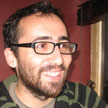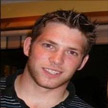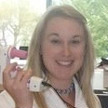Last week we asked teachers and students which scientists they’d like to see taking part this November. Scientists were rated solely on the one sentence descriptions they wrote about their work. Based on these ratings we’ve selected the scientists for each zone, and let them know they’re in. We’ll publish the full list of scientists when everyone has confirmed, but for the mean time here’s a taster of the scientists who’ve confirmed already.
This time round teachers who’ve taken part before can simply choose which zone they want to be in – Cancer, Cells or Genes. All 3 zones relate to topics being taught in November, but if you haven’t yet decided which zone you’d like to be in this might help.
Cancer Zone
Pedro Velica is a postdoc from UCL who “tries to convince the cells of the immune system to find and kill cancer cells” and wants to help students “get to know how awesome the immune system is!”
Mariana Campos is a PhD student at Cancer Research UK who asks you to… “Look at your left hand. Now look at the right one. They have the same size! But they grew independently! How do they know what is the right size?! Why does a mouse not grow to the size of an elephant?!”.
Clare Taylor is a lecturer at Edinburgh Napier University who wonders “How do we turn a nasty bug like Salmonella into a useful bug that we can use to target cancer cells for treatment?”. She can’t wait to show students why science is “such an awesome field to work in!”.
Cells Zone
Callum Johnston is a PhD student at Edinburgh University, looking at cells in the brain – “I study the brain, but brains are hard to experiment on because they are inside peoples heads – to get around this I try and grow brains in a petri dish and investigate what happens when you strave them!”. He wants to help show that “scientists are normal/funny/interesting people and that the best questions students can think of don’t have an answer yet”.
Genes Zone
Louise Walkin is a PhD student at Manchester University who works out “exactly how our bodies heal an injury, by using genetics to understand why some people are more prone to particular diseases”. She’s excited for students “Finding about a day in the life of a scientist”.
Jo Giles asks the question: “How can genes cause diseases?”. Jo is a postdoc at Cardiff University but will be speaking with students from a conference in the USA during the first week!



